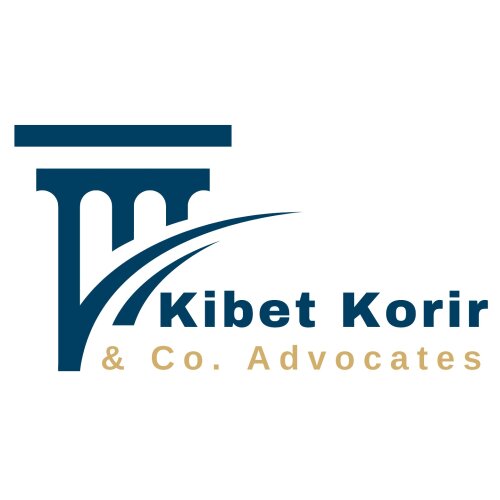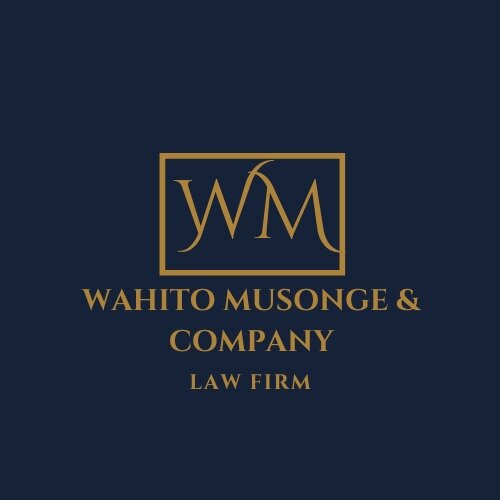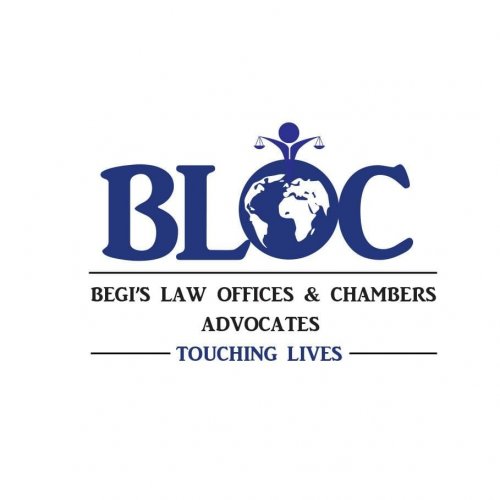Best Antitrust Lawyers in Kenya
Share your needs with us, get contacted by law firms.
Free. Takes 2 min.
Or refine your search by selecting a city:
List of the best lawyers in Kenya
Legal guides written by Adroit Law LLP:
- Kenya Launches Digital Nomad Visa: A Gateway for Remote Workers
- Navigating the Payment System License Maze in Kenya
- Navigating the Complexities of Mining Licenses and Permits in Kenya: A Look into Artisanal and Large-Scale Operations
About Antitrust Law in Kenya
Antitrust law in Kenya is primarily designed to promote fair competition for the benefit of consumers and the economy at large. These laws seek to prevent anti-competitive practices, misuse of market power, and other activities that might harm fair market competition. The Competition Act, 2010, is the principal legislation governing antitrust practices in Kenya. It aims to ensure efficiency in markets and enhance the welfare of consumers by prohibiting practices that restrict free competition.
Why You May Need a Lawyer
Engaging a lawyer specializing in antitrust law can be crucial in various scenarios:
- Merger and Acquisition Compliance: If your business is planning a merger or acquisition, legal guidance is essential to ensure compliance with antitrust regulations.
- Investigations and Allegations: If your company is under investigation or accused of anti-competitive behavior, legal expertise can help navigate the complexities and defend your case.
- Understanding Market Conduct: Companies often need to consult legal experts on acceptable market behavior and how to avoid infringing antitrust laws.
- Litigation: In case of litigation related to unfair competition, price-fixing, or monopolistic practices, a lawyer's intervention is crucial.
- Business Practices Compliance: Legal advice is necessary to draft and implement business practices that are compliant with antitrust laws.
Local Laws Overview
The key aspects of local antitrust laws in Kenya include:
- The Competition Act: This legislation is the backbone of the antitrust law framework in Kenya. It covers the control of restrictive trade practices, mergers, and concentrative market practices.
- Competition Authority of Kenya (CAK): The CAK is the regulatory body responsible for enforcing the competition laws, conducting investigations, and promoting competition across different sectors.
- Restrictive Trade Practices: The Act prohibits practices that distort, prevent, or lessen competition, such as predatory pricing, collusive tendering, and market-sharing arrangements.
- Merger Control: Businesses must notify and seek approval from CAK for mergers and acquisitions that meet certain market value thresholds to ensure the transactions do not adversely affect competition.
- Consumer Protection: The laws also aim to protect consumers from unfair practices, ensuring they benefit from competitive prices and product choices.
Frequently Asked Questions
What constitutes a breach of antitrust laws in Kenya?
Breaches include price-fixing, collusion, abuse of dominant market position, and any agreements that limit competition.
Who enforces antitrust laws in Kenya?
The Competition Authority of Kenya (CAK) is the primary body responsible for enforcing antitrust laws.
How can I report anti-competitive behavior?
You can report suspected anti-competitive practices directly to the CAK through their official channels.
Do small businesses need to comply with antitrust laws?
Yes, all businesses, regardless of size, must comply with antitrust laws to ensure fair competition.
What are the penalties for violating antitrust laws in Kenya?
Penalties can include fines, imprisonment, and directives to cease unlawful practices.
What constitutes a dominant position in the market?
A dominant position is held when a business has substantial market power to control prices or exclude competition.
What is the role of the CAK in mergers and acquisitions?
The CAK reviews mergers and acquisitions to prevent transactions that may reduce market competition.
How long does the CAK take to review a merger application?
The CAK generally takes 60 days to review a merger application once all necessary documentation is submitted.
Can a decision by the CAK be challenged?
Yes, decisions by the CAK can be appealed through the Competition Tribunal and, subsequently, the High Court.
Are there exemptions to antitrust laws?
Certain agreements and practices may be exempt if they are proven to enhance efficiency and benefit consumers significantly.
Additional Resources
- Competition Authority of Kenya (CAK): The governing body for antitrust regulation and consumer protection in Kenya.
- The Kenya Law Website: Access to legal documents, acts, and judgments relevant to antitrust proceedings in Kenya.
- Kenya Association of Manufacturers: Offers insights and resources on compliance with competition laws for manufacturing entities.
Next Steps
If you require legal assistance in the field of antitrust, consider the following steps:
- Consult an Expert: Seek the services of a lawyer who specializes in competition law to discuss your specific situation.
- Gather Documentation: Collect all pertinent documents that may relate to your case, such as contracts, correspondence, and business records.
- Prepare for Legal Proceedings: If you are involved in ongoing investigations or potential litigation, work closely with your legal counsel to prepare your defense or compliance strategy.
Lawzana helps you find the best lawyers and law firms in Kenya through a curated and pre-screened list of qualified legal professionals. Our platform offers rankings and detailed profiles of attorneys and law firms, allowing you to compare based on practice areas, including Antitrust, experience, and client feedback.
Each profile includes a description of the firm's areas of practice, client reviews, team members and partners, year of establishment, spoken languages, office locations, contact information, social media presence, and any published articles or resources. Most firms on our platform speak English and are experienced in both local and international legal matters.
Get a quote from top-rated law firms in Kenya — quickly, securely, and without unnecessary hassle.
Disclaimer:
The information provided on this page is for general informational purposes only and does not constitute legal advice. While we strive to ensure the accuracy and relevance of the content, legal information may change over time, and interpretations of the law can vary. You should always consult with a qualified legal professional for advice specific to your situation.
We disclaim all liability for actions taken or not taken based on the content of this page. If you believe any information is incorrect or outdated, please contact us, and we will review and update it where appropriate.
Browse antitrust law firms by city in Kenya
Refine your search by selecting a city.

















